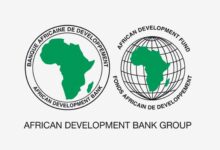Passport Fees Double: Nigerians Fume — How Nigeria Now Compares in Africa, and Why Value Must Match Price

Nigeria has imposed a 100% jump in international passport fees to ₦100,000 for the 32-page (5-year) booklet and ₦200,000 for the 64-page (10-year) booklet. Diaspora fees remain $150 and $230, respectively. The government argues that the hike will fund an enhanced e-passport regime and a one-week issuance target following enrollment.
The public mood is unmistakable: anger and disbelief. Citizens are crystal clear. Many believe that there can be no justification for it. Some insist that, at the very least, if the price doubles, service must become certain, fast, fully digital and corruption-proof. Anything less will be seen as fiscal punishment without value.
Street-Level Sentiment (BRANDECONOMY Reporting)
- First-time applicants: “₦100,000 just to start life’s journeys? Crushing.”
- Students: “Dreams deferred—fees now crowd out application, test and travel budgets.”
- SMEs & travellers: “Double price cannot come with the old delays.”
- Public servants & families: “End the whispers of ‘facilitation’. If we pay premium, we deserve zero extortion and predictable pick-up dates.”
New Official Rates — At a Glance
| Application Location | Booklet | Validity | New Fee |
| Nigeria | 32-page | 5 years | ₦100,000 |
| Nigeria | 64-page | 10 years | ₦200,000 |
| Diaspora | 32-page | 5 years | $150 |
| Diaspora | 64-page | 10 years | $230 |
Government promises: 1-week delivery after enrolment, centralised high-capacity personalisation, tighter security, removal of officer discretion, and end-to-end digitisation.
BRANDECONOMY Proprietary Benchmarks: What Do Peers Pay?
Standard adult, in-country issuance where available; base government fees for ordinary passports (not express/fast-track). Figures reflect official schedules and public tariff notices as at Sept. 7, 2025.
| Country | Standard Passport Fee (base) | Notes |
| Nigeria | ₦100,000 (32p, 5-yr) • ₦200,000 (64p, 10-yr) | Domestic applications |
| South Africa | R600 (32p) • R1,200 (48p “maxi”) | Domestic issuance |
| Kenya | KSh 4,550 (34p) • KSh 6,050 (48p) • KSh 7,550 (66p) | e-passport tariffs |
| Egypt | EGP 1,000 | Standard booklet |
| Morocco | MAD 500 (e-timbre) | Standard issuance |
| Ghana | GH₵ 350 (32p) | Standard issuance |
Takeaway: On headline costs, Nigeria now sits at the top end of Africa’s mainstream markets. That pricing sets a high service bar the system must meet, every day.
BRANDECONOMY Mobility Scorecard (mid-2025 snapshot)
Global passport power indices vary; values below reflect widely-tracked mobility metrics as at mid-2025.
- South Africa: upper-mid ranking; ~100+ visa-free/visa-on-arrival destinations
- Morocco: mid-tier; ~70–80 destinations
- Kenya: mid-tier; ~70 destinations
- Ghana: lower-mid; ~60–70 destinations
- Egypt: lower-mid; ~45–55 destinations
- Nigeria: low-mobility tier; ~45 destinations
Reality check: Nigerians are being asked to pay premium African fees while holding a low-mobility passport. That price-to-power gap explains the public anger more than anything else.
Where the Policy Lives or Dies (BRANDECONOMY Analysis)
1) Price vs. Value (the non-negotiable SLA)
The reform passes only if 7-day issuance after capture becomes normal—not a press quote. Citizens will judge the policy on this single KPI.
2) Governance & Trust
Killing the “middleman tax” is existential. If cash-only desk demands, “network down,” or unofficial add-ons persist, the reform’s legitimacy collapses.
3) Digital, or Nothing
A premium-priced system must be end-to-end digital: pay-online-only, app-based slotting, real-time tracking, geo-stamped milestones (payment ▸ capture ▸ vetting ▸ print ▸ dispatch).
4) Mobility Diplomacy
If citizens pay top-tier fees, the state must chase new visa-waiver deals—especially on student and work corridors—and publish a mobility pipeline (targets, timelines, bilateral talks).
Execution Risks & Rapid Fixes
- Bottlenecks move upstream (slots, not printing):
Fix: Centre-level capacity dashboards, automatic overflow rebooking, weekly slot releases. - Legacy gatekeeping at centres:
Fix: Zero-cash centres, CCTV/body-cams on counters, rotating managers, anonymous whistle-blow with case IDs and published outcomes. - Opaque fees & no refunds:
Fix: Pay-online-only, instant e-receipts, 15-day refund SLA for failed applications, public refund statistics.
7-Step Applicant Playbook (Cut & Keep)
- Apply & pay online only; print confirmations.
- Pre-verify biodata (NIN, names, DoB) to avoid rework.
- Pick the fastest centre, not just the closest; morning slots win.
- One-visit capture: originals + photocopies; confirm contact details on site.
- Track daily; escalate after Day 5 post-capture if no status change.
- Refuse “facilitation” offers; report with timestamps and staff IDs.
- Inspect on collection: names, chip readability, bio-page clarity.
Policy Checklist for Interior/NIS (Next 30 Days)
- Publish a tariff-for-service charter: 7-day issuance, free reprint after 14-day breach, refund triggers defined.
- Daily transparency feed: applications, captures, issuance time, backlogs by centre.
- Name-and-fix: list centres breaching SLA with fix-by dates.
- Independent audits: monthly mystery-shopper reports; quarterly public briefings.
- Equity options: explore scheduled discount windows (students/low-income) if budgets allow.
BRANDECONOMY Verdict
Nigerians can accept tough reforms—but only when value is visible. With fees now at the top of Africa’s range, the state must deliver frictionless 7-day passports, zero extortion, radical transparency, and better mobility outcomes. Until then, public anger is rational—and entirely earned.












